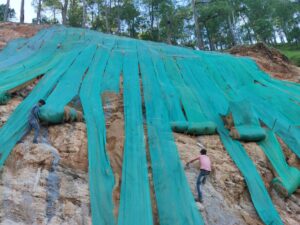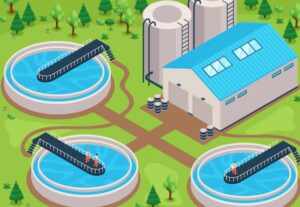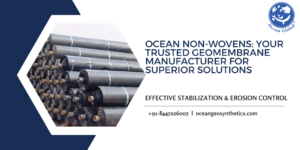What is Filtration in Geotextile?
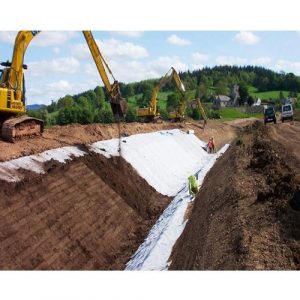
What is Geotextile?
‘Geotextile’ can be divided into two terms, ‘geo’ and ‘textile’. The term ‘geo’ comes from the Greek meaning ‘earth’, so geotextile can be referred to as the permeable textile materials that are used in combination with soil or another civil engineering material.
Geotextile is a field of technical textiles. Geotextile is a special kind of polymer fabric (polyester, polypropylene, etc.) with very tiny holes that are used to improve the soil properties in civil construction projects.
Table of Contents
Geotextile for Filtration

Geotextile plays a vital role in filtration. Filtration is one of the most significant functions of textiles used in civil engineering earthworks.
The filtration properties of geotextile are applied when there is a need for water to move in both directions. These kinds of geotextile can be woven or nonwoven, and they are used to conserve fine aggregates from moving between the soil layers.
The two principal properties of geotextile that include infiltration are porosity and permeability. Based on these properties, geotextile can as well promote the lateral flow of water, dispersing the kinetic energy from the capillary rise of groundwater. Applications of this kind of geotextile can be both vertical and horizontal, assisting to solve drainage problems along roads and structures.
How a Non-Woven Geotextile Filter is set up
A properly designed geotextile matched to the soil grading will allow some soil particles to pass through the geotextile. In this manner, the geotextile makes a filter zone within the soil adjacent to the geotextile. The nearly high-energy water close to the geotextile forces the fine and medium size particles via the geotextile.
Slightly next away the water has less energy and can just move the fine particles. Next away again and the soil is settled. What rest is a graded filter zone in the soil with course, further coarse, and medium, and lastly coarse, medium, and fine particles.
Does Geotextile Filters Clog?
All filters clog to a definite extent, whether geotextile or any other material (like. stone). Howbeit as noted previously filter geotextile are far more permeable than soil – letting at least 1,000 times more water flow than typical soils. Even in case, a geotextile loses 99% of its flow ability, it will still give adequate flow. So instead of then asking ‘will it typically clog?’ a more perceptive question is ‘will it extremely clog?’ The answer to that question is based on the site conditions.
Usual Conditions
In usual conditions, good quality filter geotextile will not be extremely clogged. Usual conditions are where the soil and water conditions do not fall into any of the categories.
Unusual Conditions
Experience depicts that the following conditions give raises to concerns about geotextile filter applications and indeed as well cause problems for traditional filter stones):
Low graded (for instance all soil particles are approximately the same size) fine, cohesion less soils like loess, rock flour, PFA, and stone quarry fines.
Dispersive clays that divide into individual fine particles over time (nearly all clays do not do this).
Cohesion less soils with uneven (gap-graded) particle size distributions, combined with high energy water flows.
Greatly alkaline groundwater where the slowing of the liquid as it flows via the geotextile can cause calcium, sodium, or magnesium precipitates to be deposited.
Liquids with more volumes of suspended solids such as turbid river water/dredged water, or combined with high-microorganism content, being in bioreactor filter beds, old mine workings releasing orange ochre and agricultural wastes.
Cases relating to high energy water and or reversible water flows like tidal zones or coastal applications.
In these cases, specialist advice should be obtained concerning the most suitable option for providing filtration. In many of these situations, the selection of specialist geotextile will give good filtration performance. In other cases the geotextile may clog leading to a reduced life expectancy of the geotextile and frequent replacement will be a must.
Ocean Woven Pvt. Ltd.| Best Filtration Geotextile & Manufacturers in India
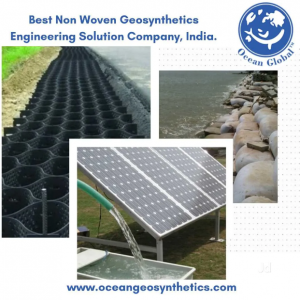
Ocean Global is the paramount geosynthetics material supplier and geosynthetics manufacturer in India. They are a supplier of geosynthetics products such as geotextile, geogrids, geomembranes, geocomposites, and geonets from India. With a rich experience of more than 21 years, they are quick to adopt the latest technology providing innovative engineering solutions. They strive to maintain the highest standards in their manufacturing and production processes and provide seamlessly integrated services.

